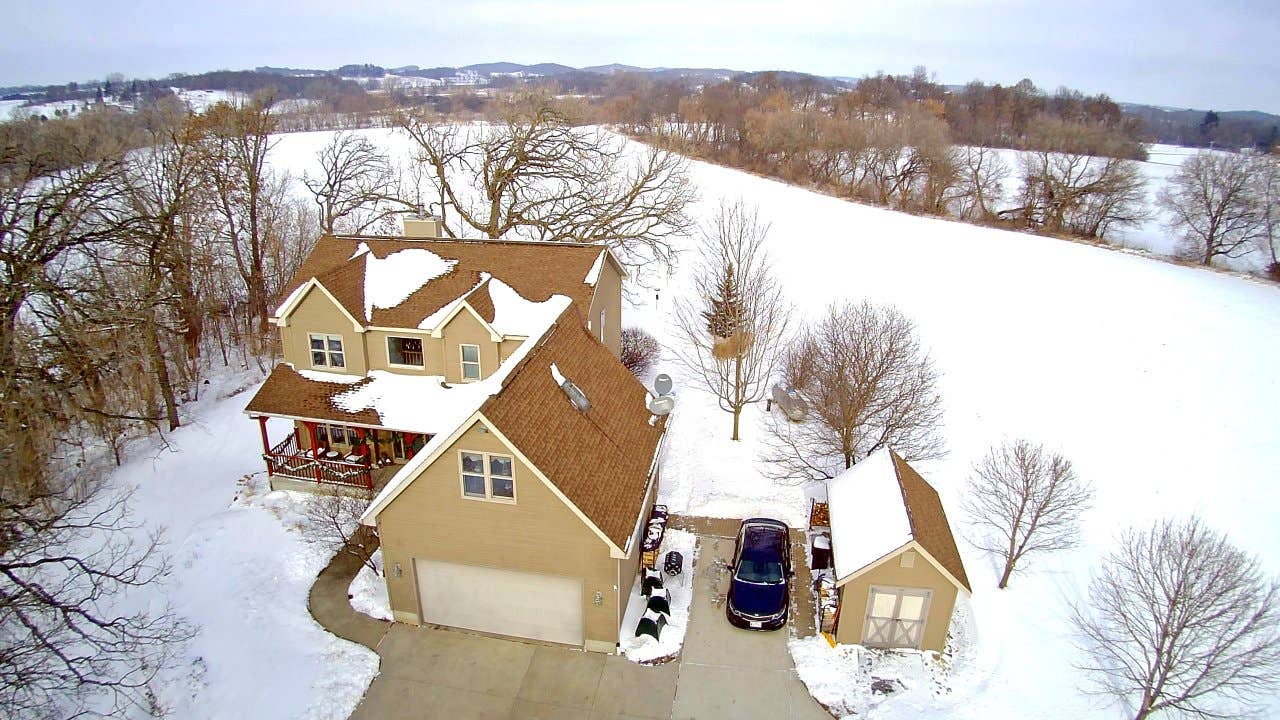Selling a home in Wisconsin

Should you put your Wisconsin house up for sale?
After all, home values have increased in the Badger State over the past two years to a median statewide sales price of $270,000 in September of 2022, according to the Wisconsin Realtors Association. Assuming you’ve been in your home long enough to realize a profit, is it time to cash in and move out?
Selling a house in Wisconsin isn’t an automatic slam dunk, though. As buyers worry about surging mortgage rates, you’ll need to consider a range of factors like when to list it, how to price it to sell quickly and what you’ll need to budget for your share of closing costs in the Badger State.
Read on for an overview of everything you need to know to sell a house in Wisconsin.
Are you ready to sell?
In the midst of headlines about inflation and the potential for a recession, you’re probably thinking about a big question: Should you sell your house now or wait? However, there is no simple answer. First, it’s important to recognize that the rise in mortgage interest rates is cooling a lot of home sales. Some experts are even predicting a tilt towards a buyers’ market, as purchasers get more picky. So, waiting longer will likely translate to less bargaining power later for you.
The best way to figure out if you’re ready to sell is to figure out how ready you are to move. For example, are you going to try to sell this home while buying another? You need to make sure you’re prepared for some bumps along the way with a backup plan for a rental if you manage to sell your place without finding a new one to buy.
Are you planning to move to another city or state? Make sure you have a solid grasp on how the cost of living there stacks up to your current one, and how that’ll affect your budget. While housing prices might be the first thing on your mind, it’s important to consider how expensive all the other essentials – food, transportation and utilities – will be.
Even if you’re planning to stay in-state, in the same town or even neighborhood, you’ll find things have likely changed a lot since you last purchased. So be sure to factor in inflation, and make sure you compare mortgage rates first to determine how much you will need to budget to buy a new place.
Preparing to sell
Once you feel confident that you’re in a good position to list your home, you need to consider a few questions about getting it ready to impress everyone who sees it.
Is it worth upgrading your home before you sell?
Major upgrades like a new bathroom or a kitchen renovation typically aren’t smart investments if you’re planning to sell immediately. Those projects require a lot of time and money, and you probably won’t recoup the full costs at resale. It’s best to ask a professional real estate agent before calling a contractor. Ultimately, you’re probably better off exploring cheap and easy ways to boost your property value or add curb appeal.
What should you repair before you sell?
As you try to figure out what to fix versus what not to fix, it’s smart to put yourself in the buyer’s shoes: What issues would make you hesitate about buying a property? For example, if a buyer discovers that your furnace is on its last legs, they’re likely going to ask for you to replace it or a sizable discount on the asking price (no one wants to deal with a brutal Badger State winter with a decaying HVAC system). Ask a real estate agent for their expertise on what issues would turn off buyers and what problems won’t be a big deal.
Should you pay to stage your home?
Staging your home can be a simple, low-cost way to make your home look like it’s ready for prime time. A lot of real estate agents operate on the seven-second rule – prospective buyers decide in seven seconds whether they like a home – and staging can make a massive difference in that first impression. How much you’ll pay depends on what kind of help you need. Decluttering and organizing won’t set you back much, while renting furniture to fill the space will be a bigger investment.
When is the best time to sell a house in Wisconsin?
Historically, May and June have been the best months to sell a house in Wisconsin. Over the past two years, each month has offered either the fewest days on the market and/or the highest percentage of homes that sell for more than their list price. However, it’s important to recognize that the past two-year period offers a somewhat skewed data set from the craziness that the pandemic brought on the housing market — and the market is quickly changing due to rising mortgage rates.
Find a local Wisconsin real estate agent
The quickly shifting market serves as a reminder of the importance of finding the right real estate agent to help with your sale. As more buyers press pause on their home searches, a local real estate agent can help you craft a strategy for a sale in these transitional times. While you might want to avoid paying Realtor fees (everyone does – they add up to as much as 6 percent of the purchase price), it’s worth the investment. Properties with an agent tend to sell for a lot more – $58,000 more, to be exact, according to the 2021 National Association of REALTORS “Profile of Home Buyers and Sellers” – than for-sale-by-owner (FSBO) listings.
Price your home competitively
Take one look at the statewide data about home prices – they increased by more than 10 percent in the last year – and it’s easy to get greedy about setting your list price. A lot can change in a year, though, and it’s important to understand that prices are cooling off around the country. So, as you’re thinking about how much to try to get for your home, it’s important to focus on two key pieces of information.
- First, estimate how much it’s worth using online algorithms that can help get you in the ballpark of a pricing strategy.
- Second – and more importantly – look at comps of recently-sold properties in your neighborhood. These are much more reliable, and they will give you a sense of what other buyers have been willing to stomach in the hot housing market. Your real estate agent will be your guide in the process, aiming to find the right price point that will stir up interest from multiple buyers in the hopes of creating a bidding war with one clear winner: you.
Documents and disclosures in Wisconsin
In Wisconsin, after a buyer and seller have agreed on a price and signed a purchase and sale agreement the homeowner has 10 days to send their successor a complete real estate condition report. A thorough account that covers everything from potential property tax increases to issues with the foundation and the presence of a dam on the property, this form includes all your knowledge of any defects that will impact the home’s value or the safety and health of anyone living there. Failure to provide this report gives the buyer grounds to back out of the deal, as does any revelation in the report that the buyer is uncomfortable with.
Additionally, if your home is part of a homeowners association, be prepared to hand over documents about the association’s financial health, copies of past meeting minutes of the board of directors and bylaws that a new owner will need to follow.
Need to sell your home fast? Consider these alternatives
The most recent data from the Wisconsin Realtors Association shows that the average home here sits on the market for 66 days – an eternity if you’re in a crunch to move elsewhere. If you’re concerned more about time than money, here are some ways to sell a house fast.
Sell it for cash: You might be lucky enough to find a buyer with deep pockets who can make an all-cash offer, which will save a lot of the time involved in underwriting a mortgage. There are plenty of companies that buy houses for cash in Wisconsin. Keep in mind that these are real estate investment firms looking for bargain deals.
List it as-is: This is a route to consider if your property is in disrepair and you can’t afford (or don’t want) to fix it up. If you list your place as-is, you’ll be telling any prospective buyers that you won’t do negotiations about repairs and requests for credits. Take the home or leave it, in other words. While this may mean a lower purchase price, as-is does save a lot of back-and-forth.
The closing
When the buyer is ready to close, you won’t need to do much. You can hand all the final responsibilities over to your real estate attorney and wait for your closing statement — a report you receive roughly three days before the closing date, outlining all your closing costs. The biggest chunk of cash goes to the real estate agents involved – 3 percent of the purchase price to your agent and 3 percent to the buyer’s. This will come out of the purchase proceeds, but you’ll have a few other expenses to cover, and some may be out of pocket.
Cost of selling a home in Wisconsin
Transfer taxes: In Wisconsin, sellers are responsible for paying real estate transfer taxes. The rate is $0.30 per every $100 of value. So, if you sell your home for $270,000, the transfer taxes would be $810.
Title insurance: You’ll need to pay for a new title insurance policy for the owner in Wisconsin. Rates vary. For reference, one established title company in Wisconsin charges $1,130 for an owner’s title policy on a $300,000 property.
Attorney fees: If you hired a lawyer (which you should have), you’ll need to pay their fees at closing, too. The cost varies based on their hourly rate and the length of time your deal takes.
Concessions: If the buyer’s home inspection report uncovers some issues with the property, they will likely request that you cover a portion of their closing costs. It’s up to you whether to agree, but if you do, this money will come out of the proceeds from the sale.
Take the first step
When you’re ready to get the sales process started, it’s smart to interview a few real estate agents about how they will approach and handle your sale. As the market begins to balance out, it’s important to find the right agent who has a plan to maximize your profit potential and minimize the risks of needing to drop the price. Ask them these 10 key questions to find the right person for the job.
FAQs
-
You aren’t legally required to hire an attorney when selling a house in Wisconsin. But you will likely want one on your side. Selling a house involves paying government taxes, reviewing lengthy contracts and exchanging a lot of money. It’s smart to have a lawyer make sure you’re protected in the deal.
-
Wisconsin law includes a six-year statute of limitations related to recovering personal property – and a home falls into that category. That long period of time should serve as a good reminder to be transparent on your seller’s disclosure form. Answer everything honestly to shield yourself from any legal action down the road.
-
You must share a completed disclosure form with the buyer within 10 days of going to contract, and the form will include all your knowledge of any defects that will lower the property value, create health or safety hazards for anyone who lives there or shorten the lifespan of the property.
Why we ask for feedback Your feedback helps us improve our content and services. It takes less than a minute to complete.
Your responses are anonymous and will only be used for improving our website.






